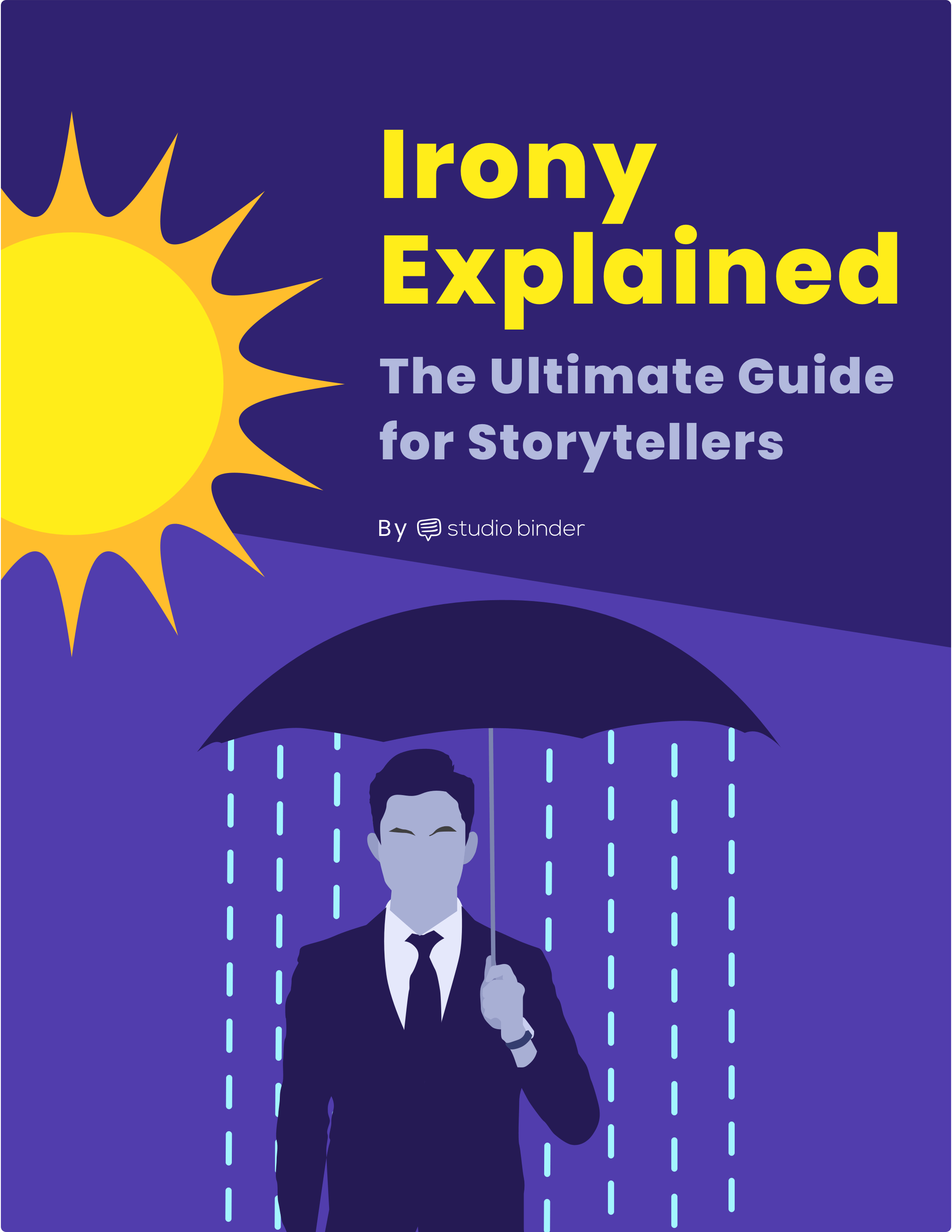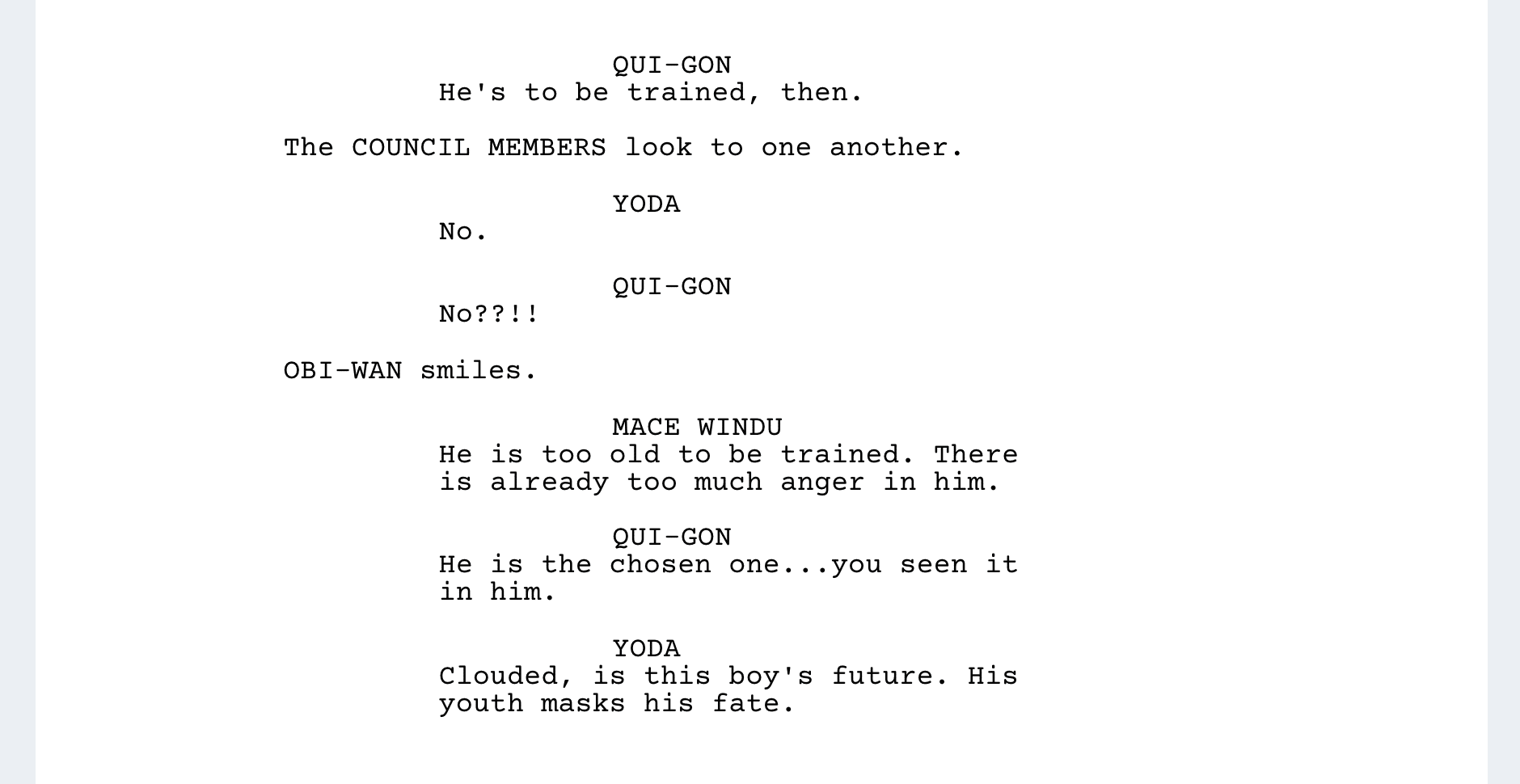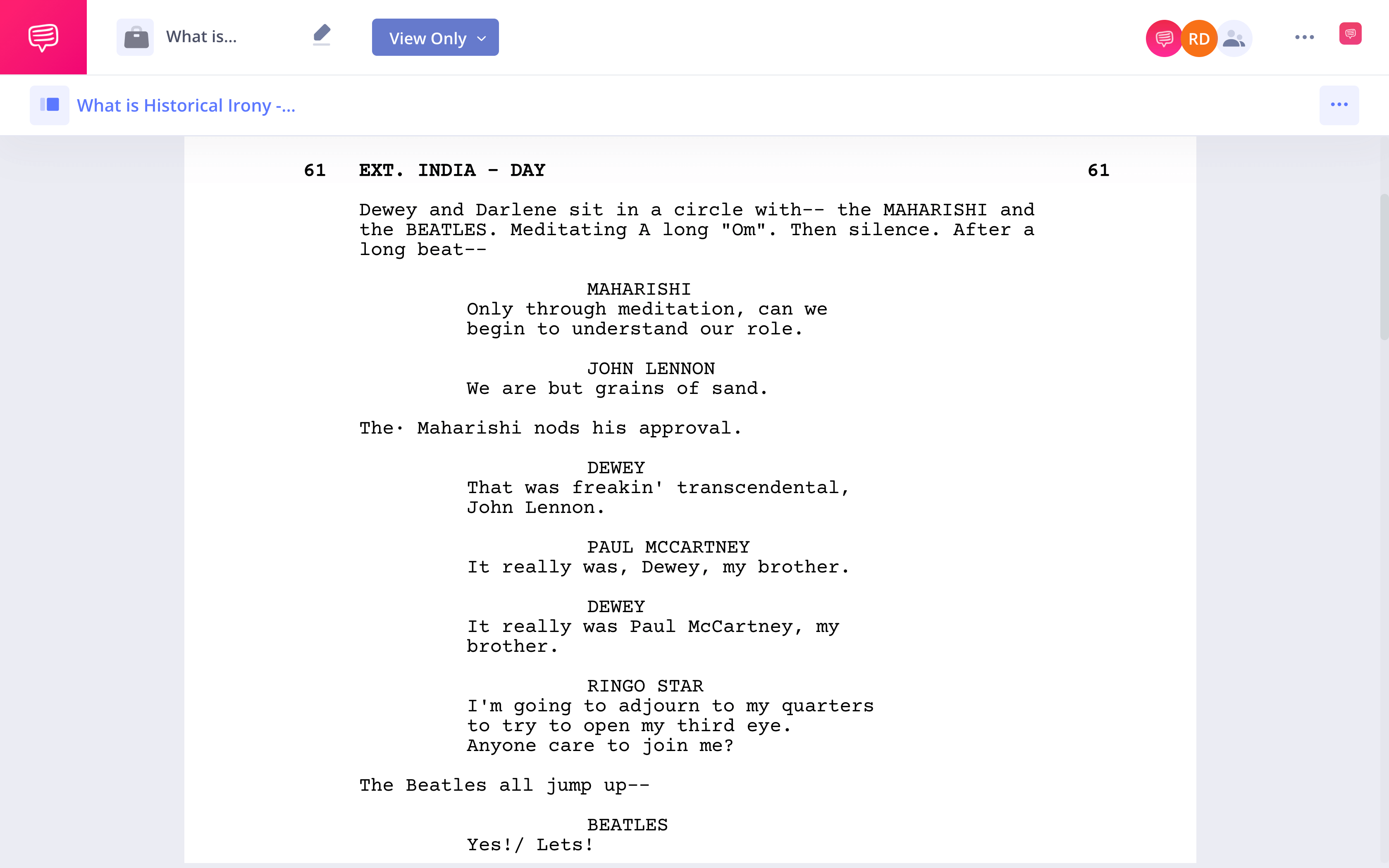The future is unwritten — at least that’s what they say — but the past is very much written. From a present-day perspective, we can learn about what was done and whether or not it worked. In storytelling, historical irony gives your characters perspective. It is a very specific type of situational irony so let’s talk about how it can be used effectively with examples from David Fincher, George Lucas, and Guillermo del Toro.
A Brief Overview
Historical irony definition
Hindsight is 20/20 and the perspectives we get from looking back provide many options in storytelling. Since we've all been touched by nostalgia at some point in our lives, historical irony becomes a universal idea. We'll get to the examples after this quick historical irony definition.
Historical Irony DEFINITION
What is historical irony?
Historical irony is when hindsight provides an ironic perspective on an action or stance made in the past. This type of irony is perfect for a character who ends up in a ironic situation they would never expect. As the name suggests, this could apply to real life as well as fiction.
Historical Irony Example:
- On Macquarie Island, cats were imported to handle the overpopulation of rats and mice. The cats eliminated the rodents...along with several species of birds, becoming the new invasive species.
For a complete guide to irony, download our FREE ebook covering the types of irony, examples, and how writers wield it.
Free downloadable bonus
FREE Download
Ultimate Guide to Irony
Irony is an essential literary device that all writers should master. Download our FREE e-book to get in-depth explanations and examples on topics like the major types and sub-types of irony, and the myriad of ways writers can use it to enrich their storytelling.

Types of Situational Irony
Historical irony as a subtype
Before we get into our historical irony examples, remember that it belongs to a larger family called situational irony. Other subtypes include poetic justice, cosmic irony, and structural irony.
In general, situational irony describes the moment when circumstances are revealed to be the opposite of what was expected. In this subtype of irony, we look to the past to see how decisions made with a specific outcome in mind panned out in the opposite direction.
This type of irony can be an important tool to tell stories that bring the past and present into moments of reflection. Let's look at how filmmakers like David Fincher, George Lucas, and Guillermo del Toro have given us essential historical irony examples.
To see how these films incorporated historical irony, we need to look at the original scripts, which we imported with StudioBinder's screenwriting software.
WHEN PROPHECY FAILS
Irony in a galaxy far, far away
The plight of Anakin Skywalker is dripping with historical irony. If you remember your Star Wars lore, Anakin was thought to be "the chosen one" would bring balance to the Force.
First, let's watch the scene when Anakin is first being tested by the Jedi Council, where their suspicions are first born.
A prophetic example of galactic irony
Soon after, there's the pivotal scene that sets this whole historical irony example in motion. Let's look at The Phantom Menace screenplay to see how this critical moment was written on the page.
Read the entire Jedi Council scene
But, despite Yoda's initial reservations, Obi-wan is finally granted permission to train Anakin as a Jedi. Not only does Anakin not bring balance to the Force, he helps Palpatine wipe out nearly every single Jedi. For all their gifts, the Jedi apparently lack the gift of foresight.
IRONY AND BEST INTENTIONS
Mimic's use of historical irony
In his formative years as a director, Guillermo del Toro made a movie called Mimic — a gloriously '90s, giant bug thriller. Remember the example above from Macquarie Island? If you switch out "rodents and cats" with "cockroaches and genetically-altered termites," you'd have the premise for Mimic.
The trailer lays out this plot in detail. By now, you should be able to recognize that Mimic's plot is based on a foundation of historical irony.
Mimic • The definition of historical irony
Historical Irony Examples
Historical Irony for Comedy
In Walk Hard: The Dewey Cox Story, director Jake Kasdan sends up the biopic genre. One trope he satirizes heavily is the use of historical irony in biopics. Think, for example, of this final line in Air:
Historical irony in Air
Phil Knight says, “It’s one player. How much could it be?” Of course, the audience knows the Air Jordan went on to be more successful than anyone ever expected. This is hammered home with the title that follows. These kinds of winking uses of historical irony abound in biopics and movies based on true events.
Because we’ve seen this trope a million times, Kasdan calls it out in Walk Hard. It’s especially comical in this scene:
Walk Hard historical irony
There’s too many historically iconic lines to count. Paul Rudd looking directly at the camera when he says, “Imagine.” Dewey Cox innocently observing, “It seems like there’s a rift happening between the Beatles.”
Of course, all of this is only funny if you have knowledge of the Beatles’ history– therein lies the historical irony. On the page, the scene is much smaller, but the irony is still there:
Historical Irony Example
As soon as Dewey mentions India, many viewers will already associate his trip with that of the Beatles.
Irony in Action
How to apply historical irony
Now that you have a firm grasp of the storytelling possibilities of historical irony, it's time to start using it.
You can build an entire franchise off a simple yet devastating lapse in judgment like George Lucas did with Star Wars. Or, as Mimic taught us, you can illustrate that scientific hubris can lead to more harm than good.
The applications of historical irony are endless — and a well-executed use of it gives the entire story a layer of sophistication. It can add a poignancy to the story that would otherwise be missing.
UP NEXT
Dive deeper into irony
We've covered the basics of historical irony but there is so much more to learn. If there is a particular form of irony you want to explore further, just follow the navigation below. Each one of these subtypes of irony belongs in every writer's toolkit.
Types of Irony
Read a summary of the various types of irony, or dive into the specifics below.


